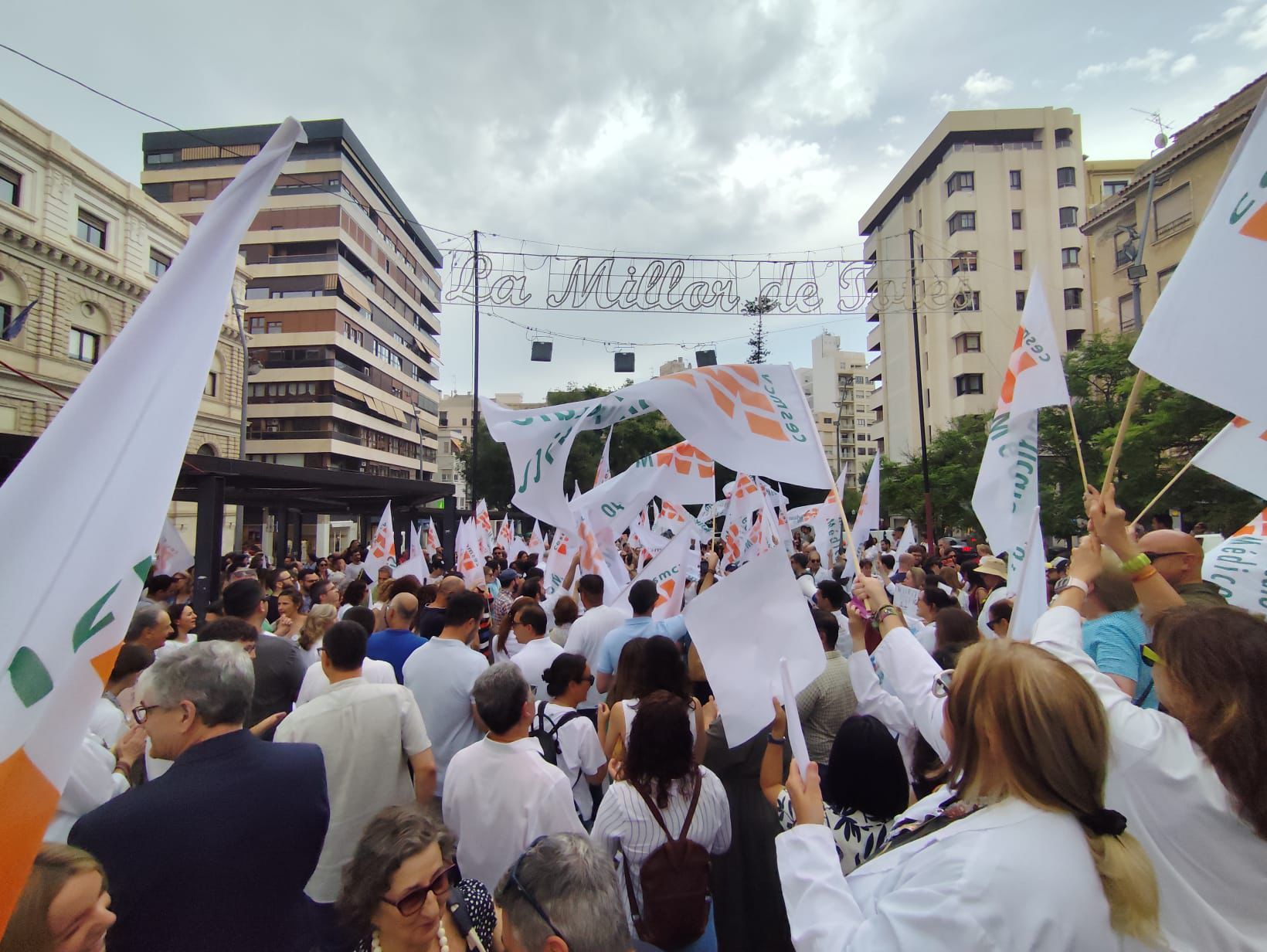
SPANISH doctors downed tools today – the first nationwide strike in five years – as medics across the country protested what they describe as ‘precarious working conditions.’
Protesters in the Canary Islands carried banners reading ‘Exploited doctor, mistreated patient’ and ‘Deficient staffing, risk to patients.’
At the heart of the dispute is the government’s proposed framework regulating working conditions for health service staff.
The medical unions argue it fails to recognise the unique nature of medical work and perpetuates poor conditions that have persisted for decades.
READ MORE: Summer to be ‘warmer than normal’ in Spain after fifth-wettest spring since 1961

Carmen Truyols, an anaesthesiology specialist at a Madrid public hospital, delivered a damning assessment of current working conditions during protests outside the Spanish parliament.
“We continue in conditions not just from 2003, but from more than 50 years ago,” she told demonstrators, adding that doctors are working in what amounts to a ‘regime of slavery.’
The strike led to the suspension of all non-urgent surgical operations across participating hospitals, with emergency services maintained to ensure patient safety.
One doctor at Vigo’s Álvaro Cunqueiro hospital confirmed that ‘all surgical interventions have been suspended except emergencies,’ with similar situations reported at medical centres nationwide.
READ MORE: Spain’s PM Pedro Sanchez apologises for latest corruption scandal but won’t call early elections

The strike saw varying levels of support across Spain’s regions, with some areas reporting participation rates as high as 95% whilst others recorded much lower figures.
In the Valencia region, strike organisers claimed between 80 and 100% participation depending on the province, with Castellón seeing 90 % support, Alicante between 95 and 100%, and Valencia around 80%. The Balearic Islands reported ‘massive’ support with hospital participation reaching 85-90%.
However, the Basque Country saw significantly lower participation, with just under 10% of doctors in the Osakidetza health service joining the action.
The local medical union there said the call to strike had arrived ‘too late’ for proper organisation.
Doctors are particularly angry about proposed mandatory exclusivity requirements for specialists in their first five years of public service, as well as for department heads and coordinators.
READ MORE: Carrefour to open 100 new stores in Spain during 2025, creating 700 jobs

They argue this creates a professional classification system that ‘equates them with other graduates, devaluing the specific training and responsibility of their profession.’
The medical profession is also frustrated by the omission of any reference to retirement regulation or the counting of on-call hours for pension purposes, issues that have been longstanding concerns for overworked hospital staff.
Health Minister Mónica García has defended the proposed statute, claiming it ‘will respond to the needs of professionals’ whilst keeping dialogue open with all unions.
However, the strength of yesterday’s action suggests significant opposition remains within the medical community.
The dispute has broader backing beyond the striking unions, with support from the Medical Profession Forum, which brings together major sector organisations including the General Council of Official Medical Colleges and the Spanish Federation of Medical Scientific Associations.
For Spain’s foreign residents who rely on the public health system, the strike highlights ongoing pressures within Spanish healthcare that could affect service quality and availability.
The medical unions are demanding not just better working conditions but also reduced weekly hours, better work-life balance, and proper recognition of the demanding nature of medical work.
The last national doctors’ strike took place five years ago, making yesterday’s action a significant escalation in the ongoing dispute over healthcare working conditions in Spain.






